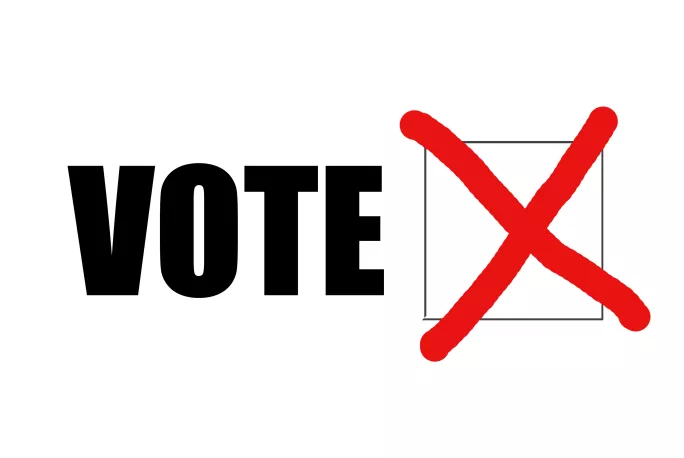How to cover the general election with your class
On 7 May, the United Kingdom will hold a general election. Voting will take place in all 650 constituencies across England, Wales, Scotland and Northern Ireland to decide the political structure of the 56th Parliament of the United Kingdom.
In each constituency, candidates from different political parties vie for the votes of constituents in order to win a seat in the House of Commons. A candidate’s victory is decided by a system called first past the post, which means that they need to acquire the most number of votes. If this is achieved, they will become their constituency’s Member of Parliament (MP) for five years until the next general election.
When will it happen?
A general election is always held on a Thursday; in this case, Thursday 7 May. One theory about why this convention was introduced is that workers were not paid until Friday, so holding the election the day before would prevent them from going to the pub, getting drunk and so forgetting to cast their vote.
Sufficiently pleased with the modern Briton’s drinking ability, the Electoral Commission has recommended trials of weekend voting to increase future turnouts. Furthermore, parties like Labour, the Liberal Democrats, the SNP, Plaid Cymru and the Greens are in favour of lowering the voting age from 18 down to 16 following the success of last year’s Scottish independence referendum, which saw high engagement from the youth vote.
Election day, also known as ‘polling day’, begins at 7am and runs until 10pm. If you are registered to vote, your nearest polling station will be disclosed on the polling card sent to you before the election process begins. Votes will then be counted at each station overnight, with a nationwide result expected early on Friday morning.
Who do people vote for?
There are currently 12 political parties represented in the House of Commons - ranging from those seeking to revolutionise the UK by reforming its political structure to those wishing to break away from it entirely. The two largest parties, in terms of membership and seats in the Commons, are Labour and the Conservatives - but smaller parties have experienced national media attention in recent years, either due to their obscurity or rise in popularity. A good summary of each party’s respective policies can be found here.
How do people vote?
To vote in the general election, you must be over the age of 18, and you need to register at your local Electoral Registration Office or Local Authority, which you can do online (https://www.gov.uk/register-to-vote). You can then choose whether you wish to vote in person or by post. Deadlines for registration vary between Local Authorities, so if you are over 18 and wish to register, visit their website to find out which date applies to you.
Why should people vote?
The decision made between an individual and their polling slip is immensely important. Over the years, some local authorities have recorded incredibly close results. In the last election, former Academy Award winner Glenda Jackson of Labour won her Hampstead and Kilburn seat by 42 votes, while in 1997 Mark Oaten of the Conservatives won his Winchester seat by just two votes. Each vote certainly counts.
However, young people are statistically less likely to turn out on polling day. Research from the Hansard Society found that just 12 per cent of people under 25 are certain to vote.
Read more: ‘I was so excited when I first voted. Teachers need to help students feel that buzz’
Who forms a government?
After the results of the general election are counted and finalised, the Queen invites the leader of the party with the most votes to form a new government as prime minister in her name. If the leader’s party does not have the full 326 seats required for an absolute majority government, a ‘hung parliament’ is called and the leader needs to decide whether to go it alone as a minority government, or to gain support from one or more political parties to see if they can create a hybrid majority government known as a ‘coalition’.
The latter happened in 2010, when David Cameron’s Conservative party were the largest single party, with 306 seats, but failed to win an overall majority. After discussions, the decision to form a coalition government was made with Nick Clegg’s Liberal Democrats.
What happens next?
David Cameron has already asked the Queen to summon the new Parliament on 18 May. On this day, the House of Commons speaker will be elected and all 650 MPs will be sworn in. A week later, on 25 May, the State Opening of Parliament will officially welcome in Britain’s new government.
Questions
- Why do you think there is expected to be such a low turnout of voters aged between 18-24?
- Do you think fewer young people will vote in this general election than the last? Explain your answer.
- From what you know about the current campaign, what is the most important issue that you think the candidates should address?
- If you were to start your own political party, what would your three main policies be?
Resources
General election May 2015: The candidates
Use this presentation as a starting point to introduce the candidates from the seven main political parties.
The May 2015 general election explained
Explain the basics of the general election with this simple but effective PowerPoint presentation.
Highlight why students should register and exercise their right to vote with the presentation.
This politics taster lesson includes a quiz on general election facts and a summary of party manifestos and key policies.
Keep reading for just £1 per month
You've reached your limit of free articles this month. Subscribe for £1 per month for three months and get:
- Unlimited access to all Tes magazine content
- Exclusive subscriber-only stories
- Award-winning email newsletters
